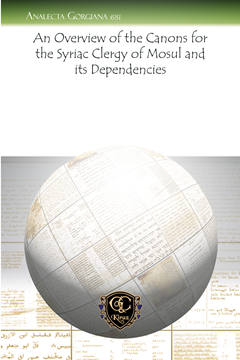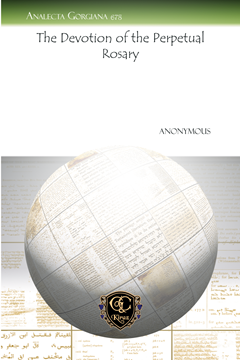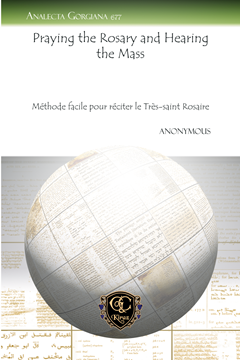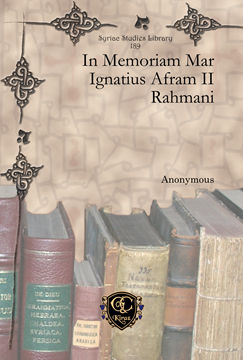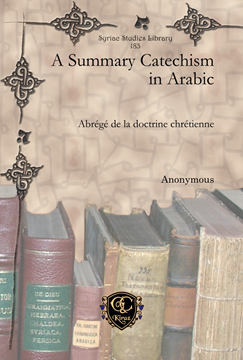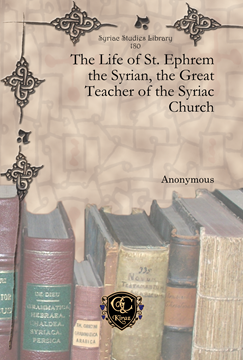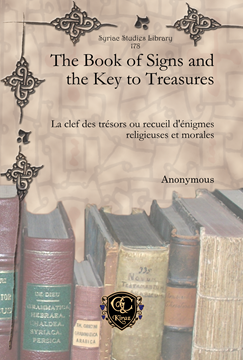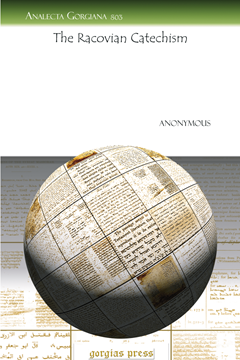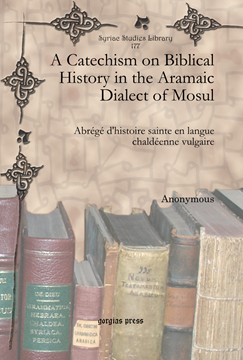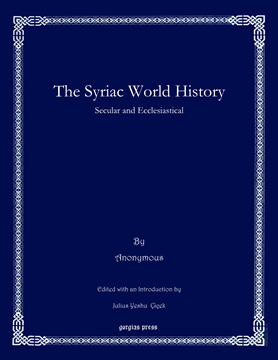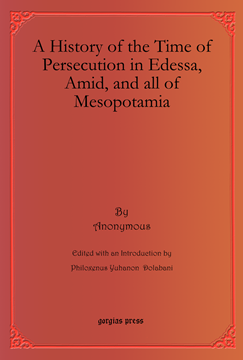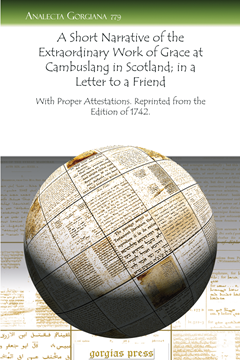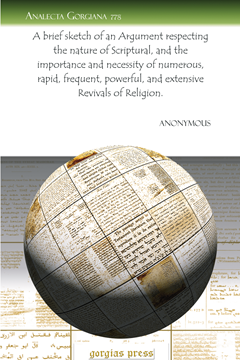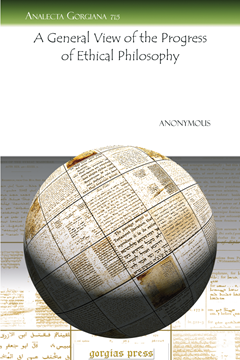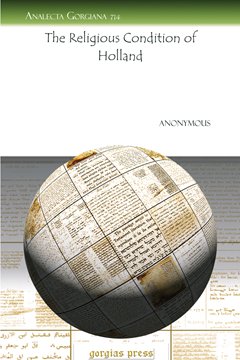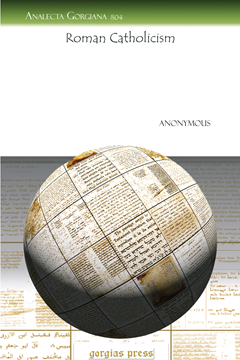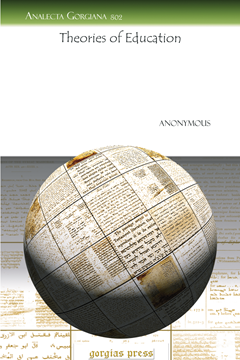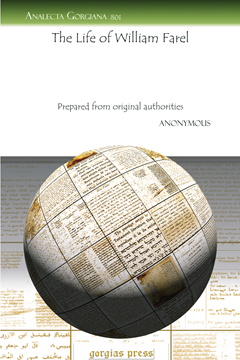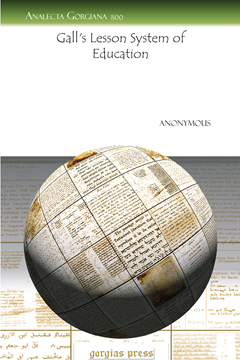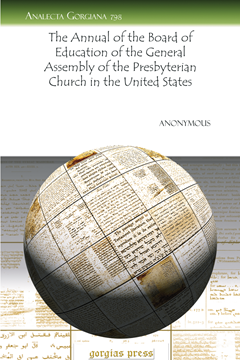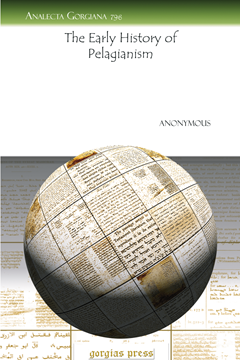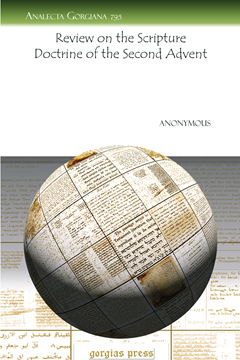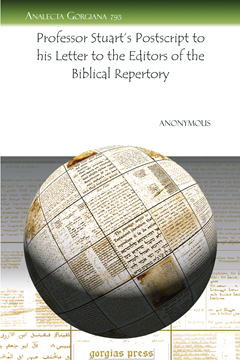Anonymous
An Overview of the Canons for the Syriac Clergy of Mosul and its Dependencies
Series: Analecta Gorgiana 681
ISBN: 978-1-61719-632-4
This short volume, originally printed at the Dominican Press in Mosul, is an Arabic collection of 173 canons and served as a convenient guide for Catholic priests in Mosul and the surrounding areas.
$41.00 (USD) $24.60 (USD)
The Devotion of the Perpetual Rosary
By Anonymous
Series: Analecta Gorgiana 678
ISBN: 978-1-61719-629-4
This volume in Arabic, originally printed at the Dominican Press in Mosul, contains chapters on the origin of Rosary devotion, its benefits, some questions and answers on the Rosary, and the way to recite the Rosary.
$51.00 (USD) $30.60 (USD)
Praying the Rosary and Hearing the Mass
Méthode facile pour réciter le Très-saint Rosaire
By Anonymous
Series: Analecta Gorgiana 677
ISBN: 978-1-61719-628-7
This manual, in Arabic and originally published at the Dominican Press in Mosul, contains the complete cycle of praying the Rosary, together with a guide for hearing the Mass.
$45.00 (USD) $27.00 (USD)
In Memoriam Mar Ignatius Afram II Rahmani
By Anonymous
Series: Syriac Studies Library 189
ISBN: 978-1-61143-008-0
This volume, published at his death, celebrates the life and work of Syriac Catholic Patriarch Ignatius Afram II Rahmani (1848-1929), from his early life to his time as priest, bishop, and then patriarch.
$153.00 (USD) $91.80 (USD)
A Summary Catechism in Arabic
Abrégé de la doctrine chrétienne
By Anonymous
Series: Syriac Studies Library 183
ISBN: 978-1-61719-762-8
This volume presents a summary catechism in Arabic for young students and includes a number of prayers and an overview of Christian beliefs, duties, and means of sanctification.
$184.00 (USD) $110.40 (USD)
The Little Office of the Blessed Virgin Mary
Petit office de la Très-Sainte Vierge
By Anonymous
Series: Syriac Studies Library 182
ISBN: 978-1-61719-761-1
This volume contains the Arabic version of the Little Office of the Blessed Virgin Mary, the shorter form of the Divine Office for the Virgin.
$164.00 (USD) $98.40 (USD)
The Life of St. Ephrem the Syrian, the Great Teacher of the Syriac Church
By Anonymous
Series: Syriac Studies Library 180
ISBN: 978-1-61719-759-8
This popular presentation of the life of St. Ephrem in sixteen chapters in Arabic, originally printed at the Dominican Press in Mosul, covers Ephrem’s life and activity from his birth. Final chapters touch on his writings and doctrine.
$154.00 (USD) $92.40 (USD)
The Book of Signs and the Key to Treasures
La clef des trésors ou recueil d'énigmes religieuses et morales
By Anonymous
Series: Syriac Studies Library 178
ISBN: 978-1-61719-757-4
This book is a collection of riddles in Arabic divided into two main sections, one part on spiritual themes, the other on morals. The book was intended to develop the mind and character of young people.
$156.00 (USD) $93.60 (USD)
The Racovian Catechism
By Anonymous
Series: Analecta Gorgiana 803
ISBN: 978-1-61143-181-0
The author provides the biography of Socianism founder Faustus Socinus. The article provides a partial translation of his posthumously compiled “Racovian Catechism” from the original Polish with the intention of revealing information about Socianism.
$36.00 (USD) $21.60 (USD)
A Catechism on Biblical History in the Aramaic Dialect of Mosul
Abrégé d’histoire sainte en langue chaldéenne vulgaire
By Anonymous
Series: Syriac Studies Library 177
ISBN: 978-1-61719-756-7
This volume provides an overview of biblical history in the form of questions and answers in the modern Aramaic dialect of Mosul.
$149.00 (USD) $89.40 (USD)
The Syriac World History
Secular and Ecclesiastical
By Anonymous; Edited with an Introduction by Julius Yeshu Çiçek
Series: Bar Ebroyo Kloster Publications 47
ISBN: 978-1-61143-241-1
This volume contains the Syriac text of the anonymous historical work known as the "Chronicle of 1234," an important historical work originating from Edessa.
$195.00 (USD) $117.00 (USD)
A History of the Time of Persecution in Edessa, Amid, and all of Mesopotamia
By Anonymous; Edited with an Introduction by Philoxenus Yuhanon Dolabani
Series: Bar Ebroyo Kloster Publications 18
ISBN: 978-1-61143-212-1
This work, written by an unnamed "teacher of the School of Edessa," provides an account of the persecution experienced by Christians under the Persian Empire.
$112.00 (USD) $67.20 (USD)
A Short Narrative of the Extraordinary Work of Grace at Cambuslang in Scotland; in a Letter to a Fri
With Proper Attestations. Reprinted from the Edition of 1742
Series: Analecta Gorgiana 779
ISBN: 978-1-61143-157-5
This article introduces and reprints a letter relating the extraordinary conversion of a large number of sinners in Cambuslang, Scotland. Following are a series of attestations to the truth of the account by various Scottish ministers.
$36.00 (USD) $21.60 (USD)
A brief sketch of an Argument respecting the nature of Scriptural, and the importance and necessity
By Anonymous
Series: Analecta Gorgiana 778
ISBN: 978-1-61143-156-8
The author advocates spiritual revivals. He describes the proper revival and says why America in particular stands to benefit from more revivals. He also warns of the negative consequences if there are too few revivals.
$34.00 (USD) $20.40 (USD)
A General View of the Progress of Ethical Philosophy
By Anonymous
Series: Analecta Gorgiana 715
ISBN: 978-1-61143-007-3
The author reviews a volume on ethics, concluding it to be insufficient. Any logical system of ethics and morals must derive from the Bible. The author criticizes the volume’s author for his sympathetic treatment of David Hume.
$34.00 (USD) $20.40 (USD)
The Religious Condition of Holland
By Anonymous
Series: Analecta Gorgiana 714
ISBN: 978-1-61143-006-6
The author outlines religious practices and history of Protestant Churches in Holland. Most attention is paid to the Reformed Church of Holland, but other Churches are discussed. The influence of politics and important figureheads is described.
$34.00 (USD) $20.40 (USD)
Roman Catholicism
By Anonymous
Series: Analecta Gorgiana 804
ISBN: 978-1-61143-182-7
A scathing polemic against Roman Catholicism, the author uses logical and textual evidence to contradict Catholic rituals and beliefs.
$35.00 (USD) $21.00 (USD)
Theories of Education
By Anonymous
Series: Analecta Gorgiana 802
ISBN: 978-1-61143-180-3
The author attacks practices common in newer forms of education. He generally calls for a more conservative, less experimental, approach which emphasizes deep general knowledge. No formal method is offered to replace the broken system.
$34.00 (USD) $20.40 (USD)
The Life of William Farel
Prepared from original authorities
By Anonymous
Series: Analecta Gorgiana 801
ISBN: 978-1-61143-179-7
The reviewer examines a biography of Protestant Reformer William Farel. The book describes Farel’s departure from Catholicism and contributions to the efforts of Swiss Reformation, Zuingle in particular. His trails and successes are described.
$35.00 (USD) $21.00 (USD)
Gall's Lesson System of Education
By Anonymous
Series: Analecta Gorgiana 800
ISBN: 978-1-61143-178-0
The author reviews a text which proposes a “Lesson System” to replace the current ineffective Sabbath school model. The new system fixes many of the old system’s errors and has been successfully implemented in a few places.
$37.00 (USD) $22.20 (USD)
The Annual of the Board of Education of the General Assembly of the Presbyterian Church in the Unite
By Anonymous
Series: Analecta Gorgiana 798
ISBN: 978-1-61143-176-6
The reviewer praises an annual, comprised of a series of articles, as valuable for students entering the ministry. The author advocates modesty, hard work and piety amongst other virtues.
$35.00 (USD) $21.00 (USD)
The Early History of Pelagianism
By Anonymous
Series: Analecta Gorgiana 796
ISBN: 978-1-61143-174-2
The author presents the history of Pelagius and his position against original sin. He reviews the positions for and against the doctrine of original sin, concluding that original sin cannot be proven true.
$39.00 (USD) $23.40 (USD)
Review on the Scripture Doctrine of the Second Advent
By Anonymous
Series: Analecta Gorgiana 795
ISBN: 978-1-61143-173-5
The article reviews a text on the Second Advent. The reviewer compares two perspectives on the scriptural descriptions of the Second Coming: either it will literally look as is depicted or the prophecies are allegories.
$37.00 (USD) $22.20 (USD)
An Essay on the Invalidity of Presbyterian Ordination
By John Esten Cooke, M.D. Lexington. 8vo. Pp. 224. 1829
By Anonymous
Series: Analecta Gorgiana 794
ISBN: 978-1-61143-172-8
The article reviews and critiques an essay that attacks Presbyterian ordination. The reviewer points to logical and textual flaws in the argument, indicating the author’s incompetence.
$40.00 (USD) $24.00 (USD)
Professor Stuart’s Postscript to his Letter to the Editors of the Biblical Repertory
By Anonymous
Series: Analecta Gorgiana 793
ISBN: 978-1-61143-171-1
The article responds to a postscript from a letter to the editor on the journal’s position on loans by the American Education Society. The editor counters the writer’s claims and defends the journal’s prior position.
$36.00 (USD) $21.60 (USD)

